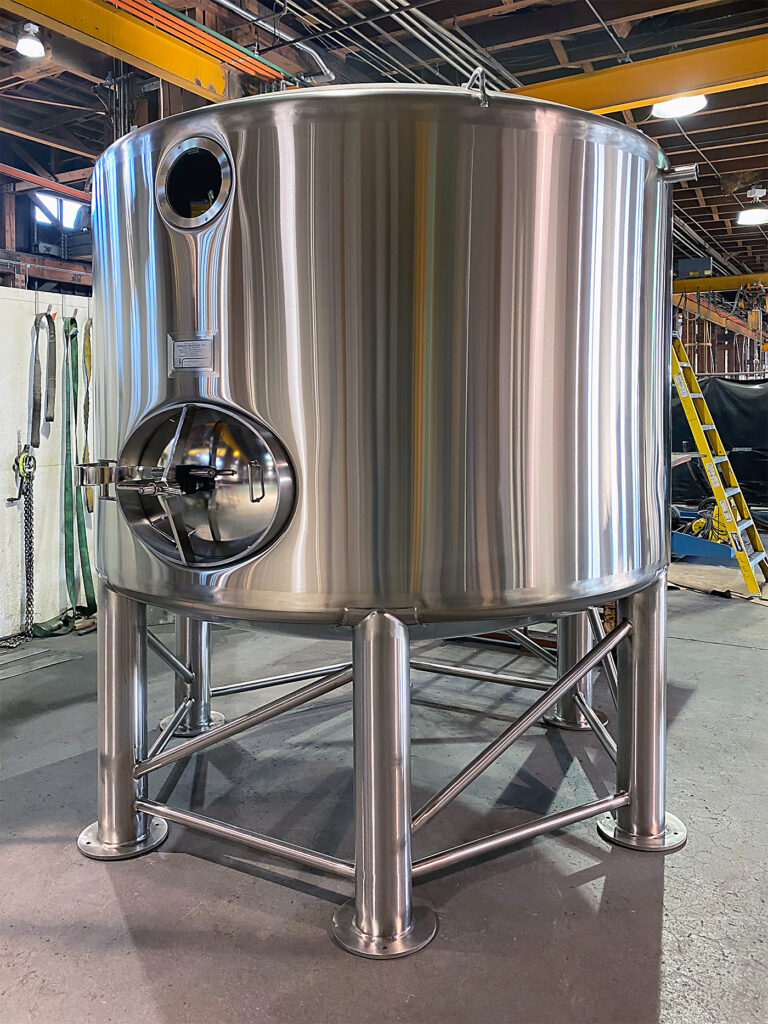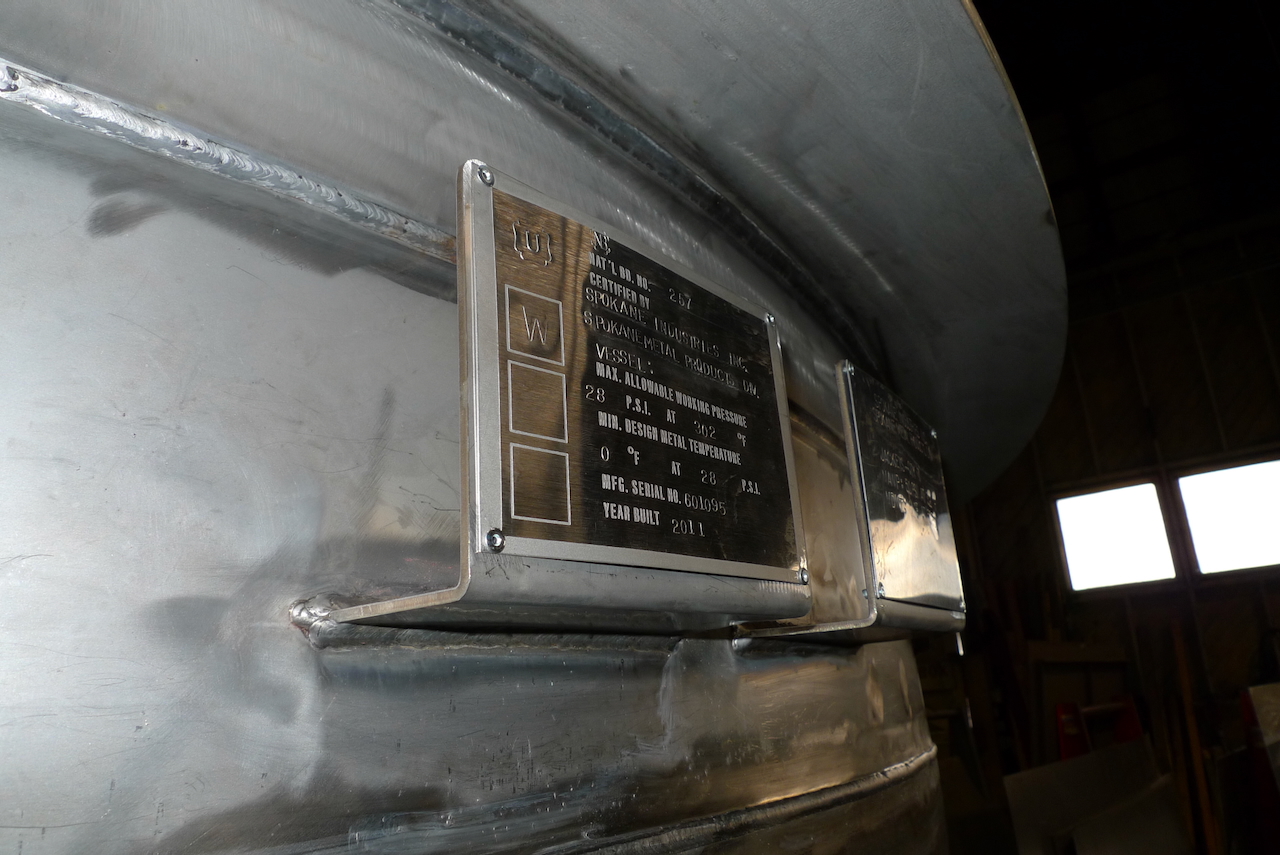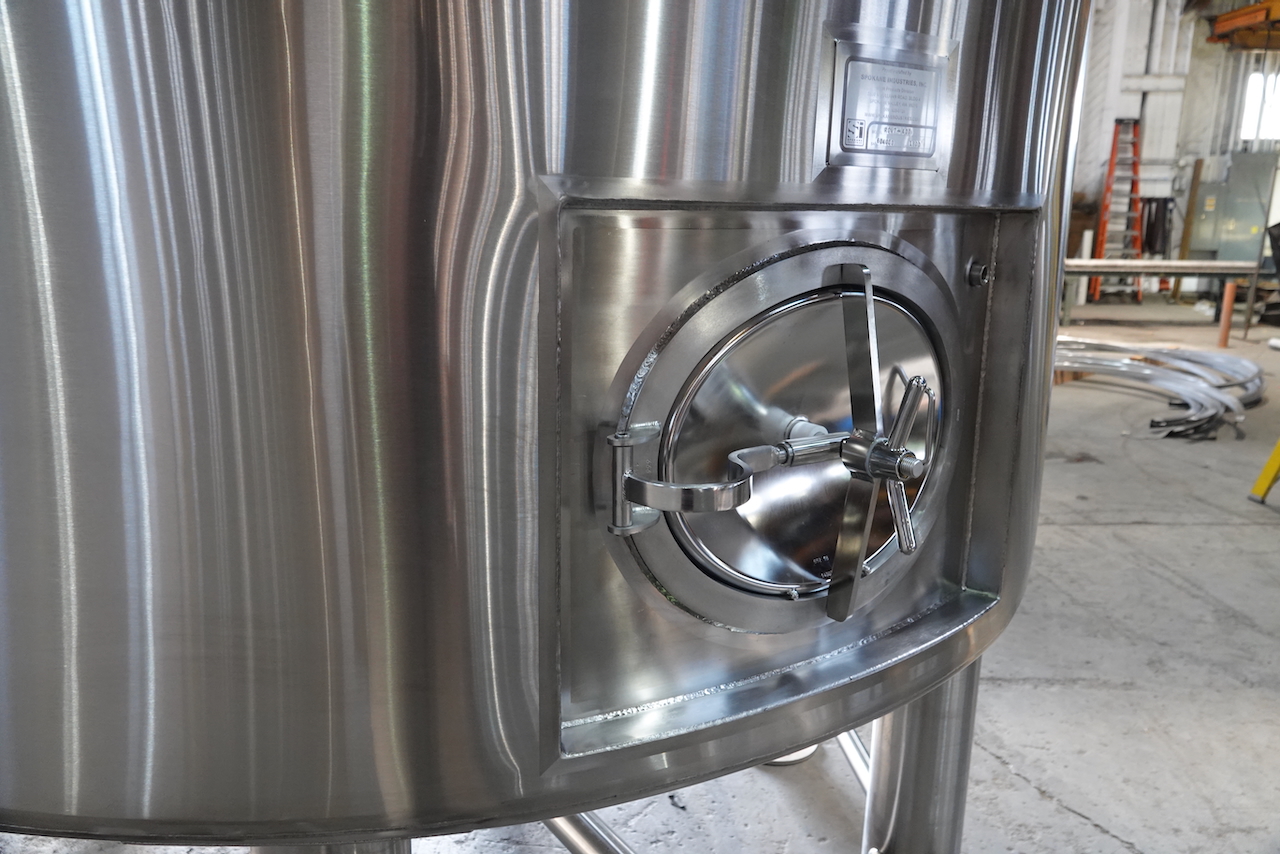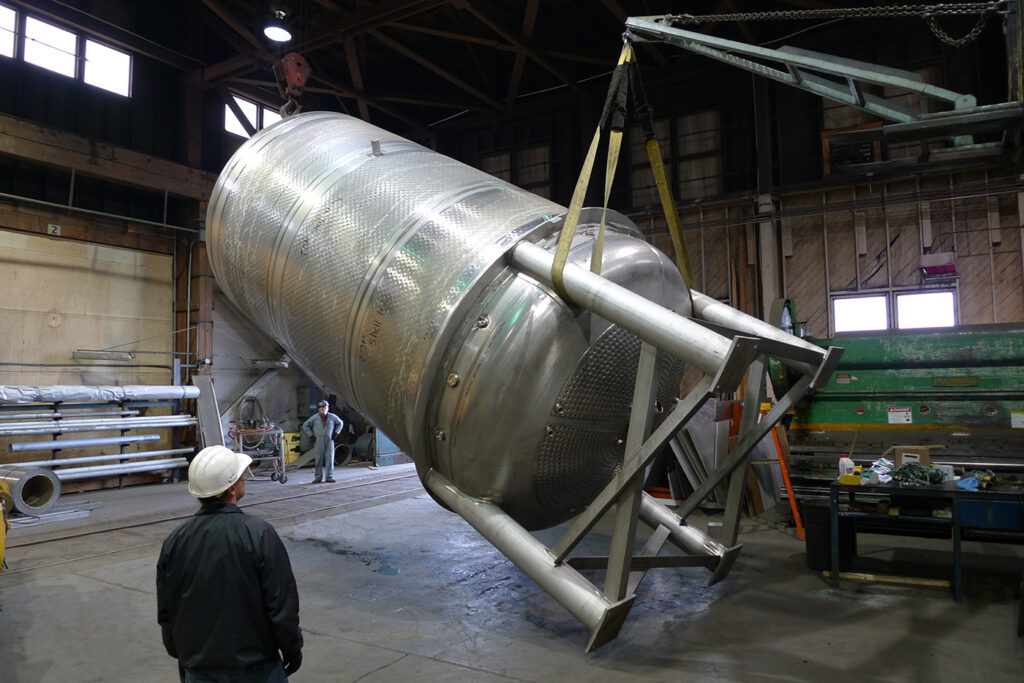Stainless steel tanks and pressure vessels play a critical role across industries like food and beverage processing, pharmaceuticals, chemicals, and biotechnology. Whether storing sensitive materials or handling high-pressure applications, these tanks must meet rigorous safety and quality standards. That is where the American Society of Mechanical Engineers (ASME) certification comes in.
ASME certifications ensure a tank has been engineered, fabricated, and inspected according to strict industry code. Let’s take a look at why ASME certification matters, what’s new, and how Spokane Stainless can help you stay on track with custom tank solutions.
What is ASME Certification?
ASME certification refers to a rigorous quality and safety standard developed by the American Society of Mechanical Engineers. In the context of stainless steel tank manufacturing, the ASME Boiler and Pressure Vessel Code (BPVC) governs how pressure vessels must be designed, built, tested, and inspected.
Originally established to prevent boiler explosions in the early 20th century, the ASME BPVC has evolved into a globally recognized benchmark for safe and reliable pressure vessel fabrication.
Tanks built to ASME standards are marked with a certified stamp such as a “U” or “UM” symbol signifying they meet the code’s strict requirements for material selection, weld procedures, pressure testing, and quality assurance.
As a manufacturer, we have decades of experience with ASME certification that demonstrates a commitment to technical precision and compliance. For end users, it means safer equipment, fewer liabilities, and tanks that stand up to demanding industrial environments.
Why ASME Certification Matters in Stainless Steel Tank Manufacturing
ASME certification is not just a badge, but a safeguard for product safety, regulatory compliance, and long-term performance. In industries where stainless steel tanks are used to store pressurized liquids, chemicals, or temperature-sensitive materials, even the smallest flaws in fabrication can lead to costly failures.
This is why ASME-certified tanks are the gold standard, and here are the top reasons why it matters.
- Safety and Risk Reduction
ASME standards are engineered to minimize the risk of leaks, ruptures, and structural failures. Certified tanks undergo strict design reviews, testing, and inspections to ensure that they meet or exceed critical safety thresholds.
- Regulatory Compliance
In many industries, such as pharmaceutical and food processing, ASME-certified equipment is not only preferred but often required by law or internal QA standards. Choosing ASME custom stainless steel tanks helps companies stay compliant with federal, state, and industry-specific regulations.
- Long-Term Reliability and Quality
ASME certification guarantees high-quality materials and construction processes. This results in stainless steel tanks and equipment that last longer, require fewer repairs, and perform better under extreme conditions.
- Global Recognition and Customer Trust
ASME-certification is recognized and accepted around the world. For businesses expanding internationally or working with safety-conscious clients, having ASME stamps on equipment provides instant credibility.
For manufacturers and customers alike, ASME certification isn’t just a technical requirement, but a trusted signal of quality, safety, and long-term value in every stainless steel tank.

ASME Code Updates: What’s New
Currently, still following the 2023 ASME codes, there are several key updates that impact stainless steel tank manufacturers and users alike.
- Material Property Revisions: Ensures that manufacturers use the most current data for material selection and design calculations.
- Minimum Design Metal Temperature (MDMT) Adjustments: Changes to the MDMT curve assignments per UCS-66 have been implemented, affecting how low-temperature applications are evaluated for safety and compliance.
- Enhanced Design Flexibility: The code now allows for more efficient and economical design and manufacturing methods, providing greater flexibility in stainless steel pressure vessel construction.
- Overpressure Protection Guidelines: The introduction of Section XIII provides comprehensive rules for the overpressure protection of pressurized equipment and pressure vessels. This addition aids in the design and implementation of safety measures to prevent equipment failure due to overpressure scenarios.
These updates reflect ASME’s ongoing commitment to safety, quality, and technological advancement in stainless steel pressure vessel design and manufacturing. Understanding the value of ASME certification becomes even clearer when you look at how it functions in real-world applications.
At Spokane Stainless Technologies, many of our clients come to us with highly specific requirements. In each case, ASME certification plays a critical role in meeting regulatory standards and ensuring long-term performance.
Spokane Stainless Technologies: Your Trusted ASME Certified Partner
Spokane Stainless Technologies is dedicated to delivering stainless steel tanks that meet the highest ASME certification standards. With expert craftsmanship and strict adherence to the latest codes, we ensure every tank provides safety, reliability, and long-term performance.
Whether your project is in food processing, pharmaceuticals, or chemical storage, partnering with Spokane Stainless means working with a team committed to quality, compliance, and customer satisfaction.
Trust us to provide durable, custom solutions designed to meet your industry’s unique needs and regulatory requirements.
Contact us today to learn more about how we can support your next ASME-certified tank project.


